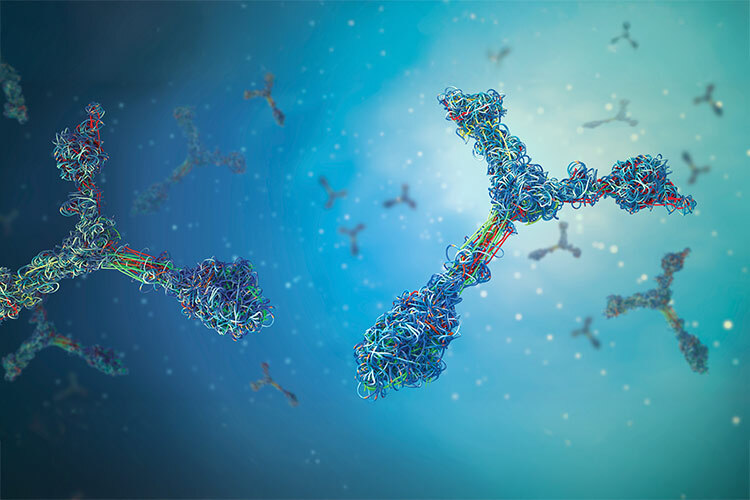Last year, new studies revealed data on the influence of what we eat on our long-term health. For example, in April, Chinese scientists published research explaining that an anti-inflammatory diet can reduce cognitive decline by up to 21%. Another paper from May points out that keto diets consumed for long periods can accelerate the aging of cells in our organs, increasing the risk of heart disease, kidney disease, and cancer. But can diet also change our immune system?
An article published this month in Nature reviews recent research focused on the relationship between diet and the immune system. In recent years, this connection has been a favorite of marketing to sell products that supposedly improve consumers’ health, although they don’t always have scientific evidence to back them up.
The lack of rigorous scientific evidence is partly due to the complexity of studies that effectively document what people eat and track their long-term health. Additionally, this type of research is often costly. As for animal studies, the results are not always clear or fully applicable to humans.
How Is the Relationship Between Diet and the Immune System Being Approached?
The Nature article explains that traditionally, nutrition scientists focused their studies on the long-term impacts of Mediterranean or Western diets. However, they now have tools to investigate their short-term effects and include more restricted food groups. Additionally, over the past five years, researchers have also approached the relationship between diet and the immune system, and their findings are beginning to garner attention and funding.
“In April, the New England Journal of Medicine released a series of review articles on nutrition, immunity, and diseases. Additionally, in January, the U.S. Department of Health and Human Services held its first Food is Medicine summit in Washington, D.C., which explored the links between food insecurity, diet, and chronic diseases,” states the article published this month.
Regarding the diet-immune system relationship, the article points out that a group of researchers argue that modern diets, especially those in the Western world, have diminished our immune resilience. However, others are more optimistic and see diet as an opportunity to treat a variety of health problems such as cancers and chronic immunological disorders like lupus.
“We are learning much more about how the immune system can be modulated with individual components or combinations of food components,” says immunologist Francesco Siracusa of the University Medical Center Hamburg-Eppendorf in Hamburg, Germany. In an interview with Nature, he adds, “The flourishing of the field of personalized nutrition over the past five to six years is very exciting.”
Concerning personalized nutrition, in a recent interview with TecScience, Ski Chilton, the researcher who leads the Precision Nutrition and Wellness Center at the University of Arizona and who is part of the Tec de Monterrey’s Faculty of Excellence initiative, explained that this type of precision approach began with the search for new options for cancer treatment.
“Currently, precision has increased dramatically in all areas of medicine. It has grown in nutrition and wellness, but primarily refers to the ability to take immense amounts of data —genomic, metabolomic, clinical— obtain many, many millions of inputs, and introduce them into machine learning or artificial intelligence (AI) algorithms that allow us to individualize healthcare for each person.”
What Kind of Research Addresses the Diet-Immune System Relationship?
This relationship has been explored by physicians since ancient Greece, however, in the last decade a greater availability of omics techniques has allowed scientists to better understand the mechanisms by which diets, and the different elements that compose them, affect the immune system.
The research revisited by the Nature article relates to the following topics:
OBESITY. Steven Van Dyken, an immunologist at the Washington University School of Medicine in St. Louis, Missouri, has focused his research on the immune response typically triggered by allergens and parasites, to see if it could help regulate metabolism.
“He and others had previously observed how a type of dietary fiber called chitin, which is abundant in fungi, crustaceans, and edible insects, activates this immune response, known as type 2 immunity. Van Dyken and his team wondered what effect a diet rich in chitin might have on metabolism, so they fed mice this diet and observed that their stomachs stretched much more than those of mice on a normal diet,” Nature details.
Regarding the results, the article adds: “The stretching activated type 2 immunity, which in turn triggered an enzyme that digests chitin. However, preventing this enzyme from functioning had remarkable benefits: mice that were genetically modified to be unable to produce the enzyme gained less weight, had less body fat, and had better insulin sensitivity than normal mice when both were fed chitin.”
In addition, chitin also caused increases in levels of glucagon-like peptide-1 (GLP-1), the hormone that Ozempic (semaglutide) and other similar weight-loss drugs mimic, which helps to suppress appetite. Therefore, adjusting the relationship between chitin, immunity, and health (for example, by reducing levels of the enzyme that digests it) could guide the development of therapies such as appetite suppressant drugs.
“Previous research has shown that chitin can activate similar human immune responses,” says Van Dyken. Adjusting these immune responses using chitin and the enzyme could “represent a therapeutic target for metabolic diseases such as obesity,” he notes. The researcher has already filed a patent related to the use of chitin and the enzyme in therapies for respiratory and metabolic diseases.
PSORIASIS. It’s worth noting that this is an autoimmune disease in which skin cells build up into dry, scaly patches. Several studies had already shown that high-fat diets drive psoriasis through increased activation of immune cells that cause inflammation.
However, in a new study, immunologist Chaoran Li of Emory University School of Medicine in Atlanta, Georgia, and his team used RNA sequencing to inventory immune cells in the skin of lean mice and found a population of T cells that normally keep psoriasis-causing inflammation in check.
But “when they looked for the same cells in obese mice on a high-fat diet, they found much lower levels, along with elevated psoriatic inflammation. By searching data from studies of cells taken from people with psoriasis, Li also found the same altered cells as in the mice,” Nature describes. Although this research is still ongoing, Chaoran Li hopes his work will help improve treatments for the disease.
MULTIPLE SCLEROSIS. It’s important to mention that, according to Nature, various studies link fasting to lower risks of hypertension, atherosclerosis, diabetes, and asthma, however, some researchers think that they can treat people with these diseases without the need for them to eat less. This is where Cheng Zhan‘s papers come in, a neuroscientist at the University of Science and Technology of China in Hefei.
Zhan wanted to investigate a group of neurons in the brainstem that help regulate the immune system, to see if by manipulating them he could obtain the desired effect. In a paper published in January, the Chinese researcher and his team demonstrated that these neurons were activated in mice in response to fasting and caused T cells to retreat from the blood, spleen, and lymph nodes to their central reservoir, the bone marrow.
This study also used a mouse model of the autoimmune disease multiple sclerosis to demonstrate that continuous activation of these neurons significantly alleviated paralysis, prevented disease-related weight loss, and increased survival. Zhan says that findings like these could allow people to reap the benefits of fasting without going hungry. “These neurons can be activated with electrical stimulation, small molecules, or other activities,” he says.
Can Incorporating Fasting Into Our Diet Improve Our Immune System?
While evidence recorded over the past decade supports fasting as a therapy, Nature cites new studies suggesting that reducing calories in our diet could trigger harmful effects, including a weakening of the immune response.
A 2023 study by Filip Swirski, an immunologist at the Icahn School of Medicine at Mount Sinai in New York City, and his colleagues recorded a 90% reduction in monocytes circulating in the blood of fasting mice, and an increase in these cells in the bone marrow, where they are produced.
When the mice were fed after fasting for 24 hours, monocytes flowed back into the blood in unusually large quantities, causing monocytosis, a condition that is usually associated with infectious and autoimmune diseases. These post-fasting monocytes also lived longer than normal and had a lower than usual threshold for triggering inflammation. When researchers infected the fasted mice with Pseudomonas aeruginosa, a common cause of bacterial pneumonia, the animals died sooner and in greater numbers than controls that did not fast.
Swirski believes that the body conserves its reserve of monocytes as a protective mechanism while energy reserves are low, but if fasting is prolonged, the costs may outweigh the benefits. However, the researcher himself acknowledges that more studies are needed to better understand the implications of his research in humans.
In addition to prolonged fasting, drastic changes in our diet can also impact our immune system, something that Francesco Siracusa of the University Medical Center Hamburg-Eppendorf in Hamburg has studied, who has investigated “feasting diets,” a trend that seeks to exceed the consumption of high-fat, energy-dense foods.
Siracusa and his colleagues’ study involved feeding mice a “permissive” diet, low in fiber and high in fat, for three days, then returning to a normal diet for another three days, before repeating the cycle. This switch to a high-fat diet suppressed immunity and made the mice more susceptible to bacterial infections. Additionally, it reduced the number and undermined the function of certain T cells that help the body detect and remember pathogens.
Furthermore, subsequent tests showed that the lack of fiber affected the gut microbiome, which generally supports T cells. “I was surprised that changing the diet for only three days was enough time to see these dramatic effects on the cells of the adaptive immune system,” Siracusa tells Nature.
Although Siracusa has tested his study in six human volunteers, with similar effects on T cells, the researcher notes that there is still much work to be done and the work in mice can only provide clues about what happens in humans.
Did you find this story interesting? Would you like to publish it? Contact our content editor to learn more at marianaleonm@tec.mx.















